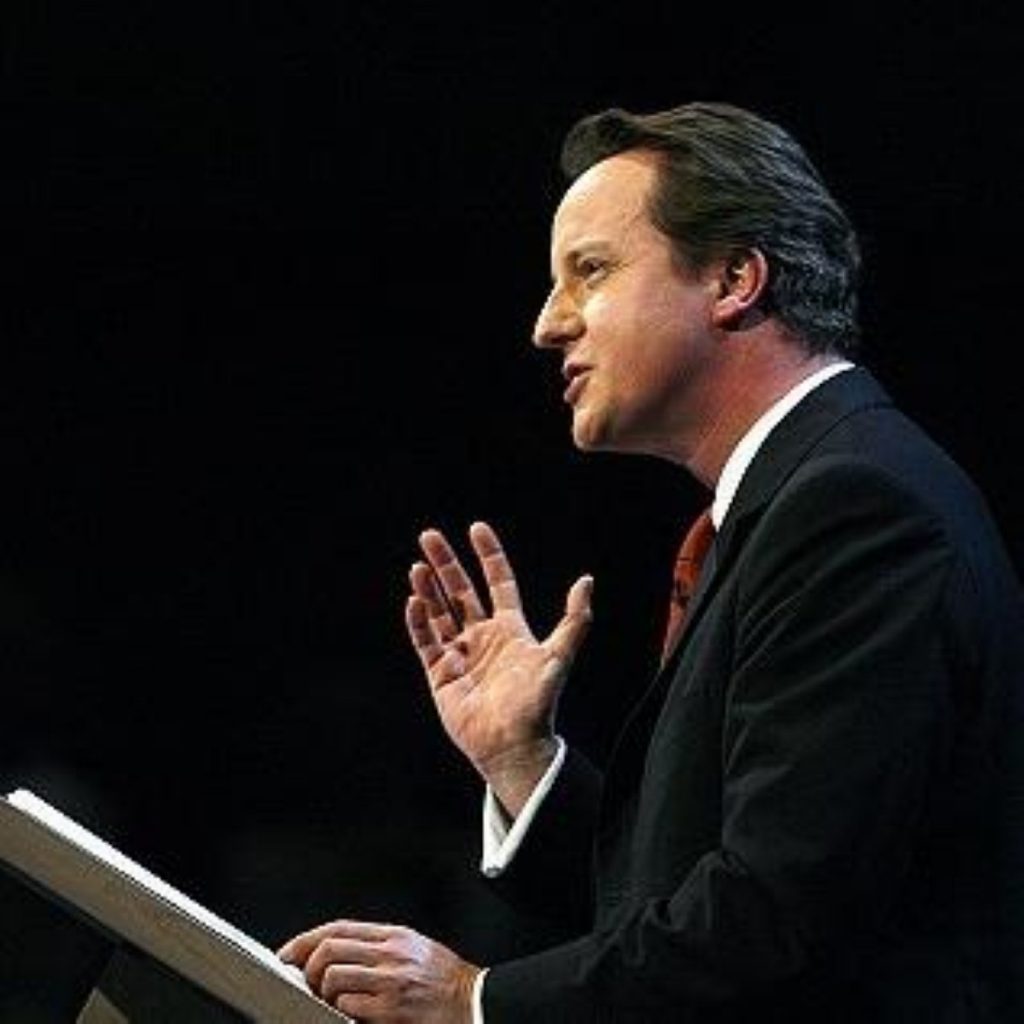Cameron defends Libya defection as regime ‘crumbles’
By Alex Stevenson and Ian Dunt
David Cameron has defended the defection of a senior Gaddafi loyalist, saying it shows the dictator’s authority is slipping away.
The comments came after critics raised concerns about whether Musa Kusa would be offered legal protection in exchange for swapping sides.
“Musa Kusa is not and should not be above either British or international law,” shadow foreign secretary Douglas Alexander said.


“While there is an urgent operational need to ascertain information from Musa Kusa with respect to the present conflict in Libya, the relevant authorities, including the police, should in time be able to ask him all the necessary questions about Libya’s violent history, not least on British soil.”
Campaigners are especially concerned that any legal deals offered to the former Libyan foreign minister could upset families of the victims of the Lockerbie bombing, who were already incensed following the release of Abdelbaset al-Megrahi from a Scottish jail.
“Let me be clear: Musa Kusa is not being granted immunity,” David Cameron said during a press conference today.
“There is no deal of that kind.
“The point I would make about the dreadful events over Lockerbie, that investigation is still open. And the police and the prosecuting authorities [are] entirely independent of government and they should follow their evidence wherever it leads.”
But the prime minister did insist that his defection should ring alarm bells in Tripoli.
“The decision by the former Libyan foreign minister to come to London and resign his position is a serious blow to Gaddafi’s authority and we should not underestimate that,” Mr Cameron said.
Those comments were echoed by William Hague, who said it was proof the Libyan regime was crumbling.
“Musa Kusa’s resignation shows that Gaddafi’s regime is fragmented, under pressure and crumbling from within,” the foreign secretary said at the start of a speech on human rights this morning.
“Gaddafi must be asking himself who will be the next to abandon him?”
Mr Kusa arrived at Farnborough airport yesterday after travelling under his own free will, the Foreign Office has said. He is now “discussing” the situation with British officials.
Mr Hague said Mr Kusa had been his main channel of communication with the Libyan regime in recent days – and that he had last spoken to the foreign minister on Friday.
Colonel Gaddafi’s government has denied that Mr Kusa had defected.
It follows the earlier decision of Libya’s ambassador to the UN to refuse to work for Col Gaddafi in New York.
The positive propaganda news is not reflected in the situation on the ground in Libya, however. Rebel forces have been forced back to Ajdabiya after a major counteroffensive from Col Gaddafi’s troops.
Rebels have lost Ras Lanuf, Brega and Bin Jawad, reversing their rapid advance towards Col Gaddafi’s home town of Sirte at the weekend.
The isolated rebel-held Misrata, Libya’s third largest city, continues to come under attack and the humanitarian situation there remains of grave concern.
Yesterday British Tornado aircraft launched missiles against three tanks, two armoured fighting vehicles and a surface-to-air missile site, the Ministry of Defence said.
HMS Cumberland launched her Lynx helicopter on a number of surface search missions as part of the coalition’s surveillance effort in support of the arms embargo in operation against Libya.
Yesterday Mr Hague told the Commons he had decided to expel five Libyan diplomats from their embassy in London.












